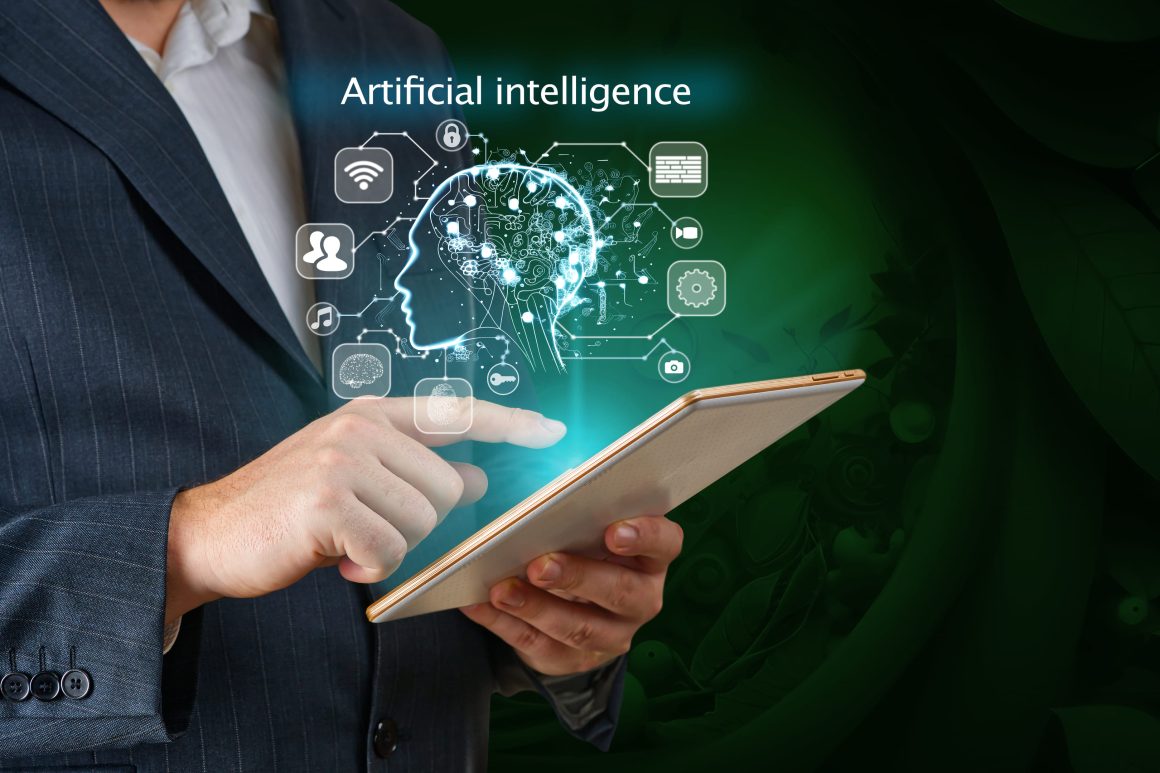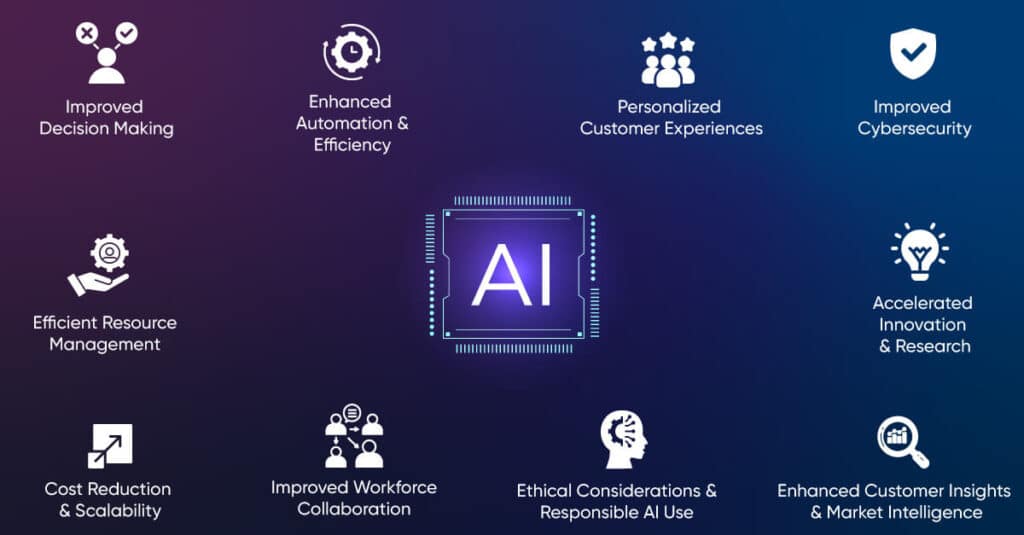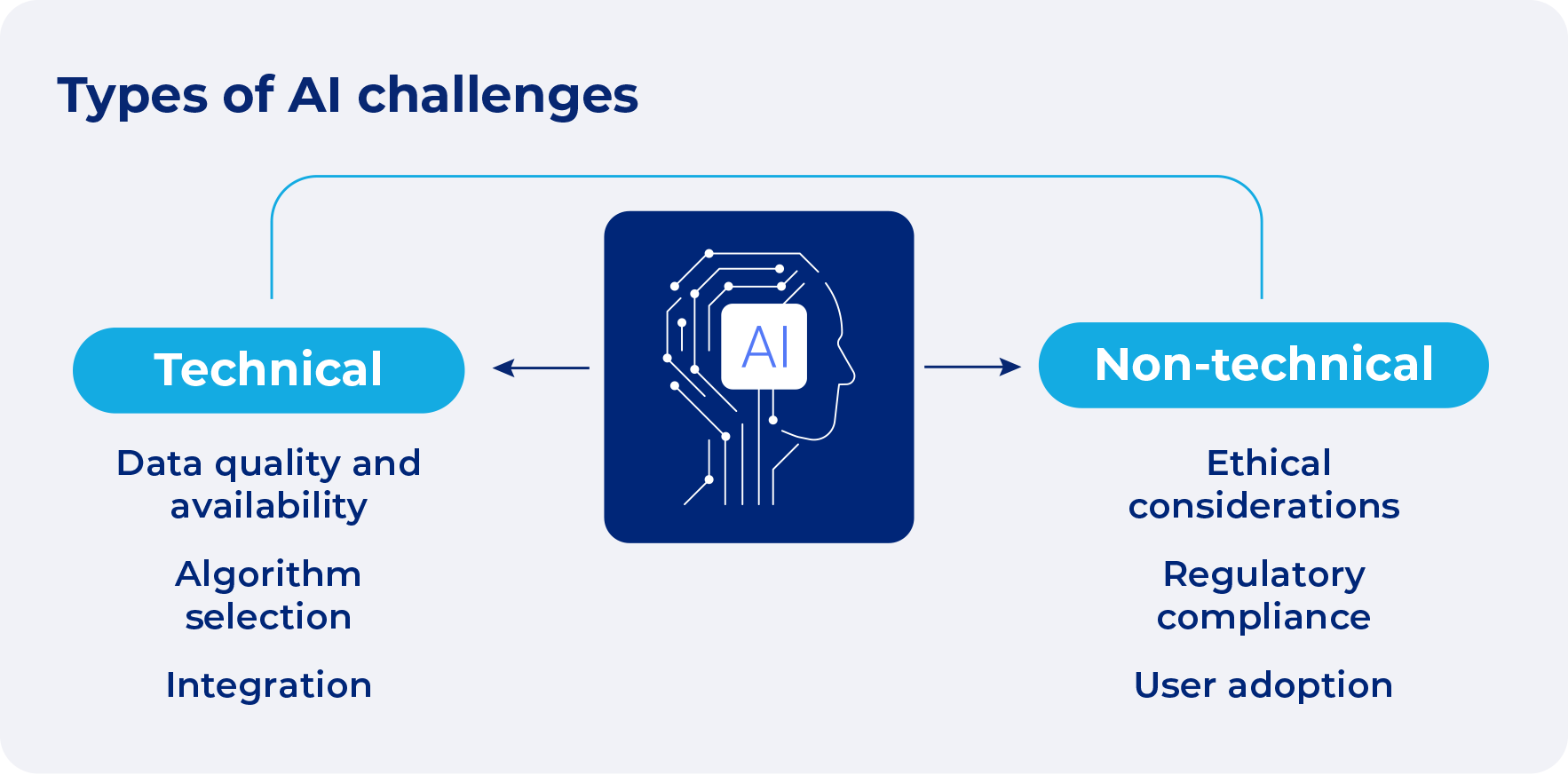Artificial Intelligence (AI) is no longer a futuristic concept, it’s here, and it’s rapidly becoming an integral part of how modern businesses operate, compete, and grow. From small-scale tasks to enterprise-level strategies, AI is unlocking new opportunities across industries by streamlining operations, enhancing customer and employee experiences, and enabling smarter, faster decision-making.
As organizations worldwide strive to innovate and stay ahead, the strategic adoption of AI is proving to be a true game-changer.

Understanding the Basics: What Is Artificial Intelligence?
At its core, Artificial Intelligence (AI) is the ability of machines to imitate or simulate human behaviors and cognitive processes. It can analyze data, learn from it, understand language, and make predictions or decisions based on the information it receives. AI is already embedded in many everyday applications, from smart assistants to personalized recommendations, and it continues to evolve at a remarkable pace.
Among the various branches and terms within the AI ecosystem, one stands out for its transformative potential in business: Generative AI.
Generative AI refers to AI systems that create new content, such as text, images, videos, music, or code, based on a user’s prompt. It relies on large language models (LLMs) trained on vast datasets to produce realistic and coherent outputs. However, the quality of the generated content hinges on the quality and governance of the data used to train these models.
What Is AI in a Business Context?
AI in business refers to the integration of AI tools and technologies into daily business operations to enhance performance, productivity, and service delivery. These tools include:
-
Machine Learning (ML)
-
Natural Language Processing (NLP)
-
Computer Vision
-
Generative AI (Gen AI)
Used together or independently, these tools optimize processes, improve technology performance, enhance human roles, and streamline workflows.
Also read: 12 Best Free AI Tools for Business to Boost Productivity & Profits
The Rise of Enterprise AI
To fully realize the benefits of AI, businesses are turning to Enterprise AI, an enterprise-grade AI solution that combines automation, orchestration, and AI-powered agents to support a wide range of tasks. From basic data entry to complex, multi-layered workflows, Enterprise AI integrates seamlessly with existing systems and datasets. It delivers enhanced value by surpassing traditional automation and enabling real-time insights, adaptability, and scalability.
What AI Can Do for Businesses
AI offers transformative capabilities in a wide range of business areas:
-
Data entry, extraction, and consolidation
-
Predictive analytics and forecasting
-
Customer service automation
-
Personalized customer experiences
-
Fraud detection and prevention
-
Supply chain optimization
-
Real-time decision-making support
-
Risk assessment
-
System monitoring and predictive maintenance
But with great power comes great responsibility. It’s important to demystify AI and understand its limitations.
What AI Can’t (and Shouldn’t) Do
While AI is a powerful tool, it must be applied with care and consideration, especially in areas involving critical or sensitive business operations. Here are a few things AI should not do:
-
Make critical decisions without human oversight
-
Operate without clear rules or transparency
-
Handle sensitive data without strict security protocols
In short, AI should be a tool, not a replacement for human judgment, particularly when the stakes are high. The most effective AI applications are those implemented with thoughtful strategy, robust controls, and clear governance frameworks.

10 Key Benefits of Using AI in Business
Let’s take a deep dive into the most impactful advantages AI brings to modern enterprises:
1. Enhanced Decision-Making
AI empowers businesses to make smarter, faster, and more data-driven decisions. By analyzing large volumes of data with speed and precision, AI uncovers hidden patterns and insights that might otherwise be missed.
Example: A sales executive can prompt an AI tool to instantly analyze customer data for a particular product over the past month, eliminating the need for manual data mining.
2. Increased Efficiency and Productivity
AI excels at automating repetitive, low-value tasks such as data entry, report generation, and scheduling. This automation frees up human employees to focus on strategic, creative, and higher-impact responsibilities.
Example: An AI agent can collect and analyze data from various sources, generating concise reports that help employees focus on interpretation and decision-making instead of gathering information.
3. Unlocking New Capabilities
AI expands the possibilities of what businesses can automate and achieve. Unlike traditional automation, AI can handle unstructured data, such as natural language or images, enabling businesses to automate tasks that were previously out of reach.
Example: AI can read and understand customer complaint emails, extract key details, and assign tasks to digital workers for resolution.
4. Elevated Customer Experience
AI enhances customer service through faster response times, more personalized interactions, and proactive support. From chatbots to predictive product suggestions, AI creates smoother, more engaging customer journeys.
Example: Based on purchasing behavior, AI can recommend products a customer is likely to be interested in, increasing satisfaction and sales.
5. Improved Employee Experience
By simplifying complex processes and reducing tedious work, AI supports a more positive, efficient work environment. It also aids in onboarding, project tracking, and information access.
Example: AI can automate new hire paperwork and schedule orientation sessions, allowing HR teams to focus on culture-building and employee engagement.

6. Cost Savings
Automation powered by AI reduces operational costs by cutting down on manual labor, accelerating processes, and minimizing errors. This allows businesses to optimize resource allocation and eliminate inefficiencies.
Example: AI can detect faults in manufacturing processes more quickly and accurately than human workers, preventing costly downtime or defective product batches.
7. Fewer Errors and Higher Accuracy
Unlike humans, AI and automation systems perform tasks consistently, reducing the risk of errors in critical processes like financial reporting or data entry. Plus, AI systems learn from past mistakes, continually improving over time.
Example: In finance, AI can automatically reconcile transactions and flag inconsistencies before they affect reporting.
8. Fostering Innovation
Generative AI can be a powerful brainstorming partner, offering creative suggestions, prototypes, or content ideas. Combined with analytics, AI also helps businesses stay ahead of trends and inform long-term strategies.
Example: AI tools can analyze market data to guide product development and generate sample concepts or promotional content.
9. Easy Scalability
Cloud-based AI solutions and digital workers are highly scalable. They can easily handle increasing workloads or shifts in strategy without the need for expanding staff or infrastructure.
Example: Retail businesses can use AI to automate order confirmations and process refunds during peak shopping seasons, all without hiring seasonal staff.
10. Greater Accessibility and Democratization of AI
Thanks to natural language processing, non-technical employees can now engage with AI through simple text-based prompts. This lowers the barrier to adoption and spreads innovation throughout the organization.
Example: A marketing team member can use plain language to build a customer support chatbot without needing programming skills.

A New Era of Business Empowered by AI
Artificial Intelligence is not just a tech trend, it’s a fundamental shift in how businesses operate, compete, and grow. When implemented thoughtfully and ethically, AI brings unmatched value by empowering employees, enhancing customer experiences, and streamlining complex operations. Enterprise AI, in particular, offers a robust framework for deploying AI at scale with security, transparency, and governance.
As we move forward, the most successful businesses will be those that harness AI not just for automation, but as a catalyst for innovation, agility, and long-term transformation.
With inputs from agencies
Image Source: Multiple agencies
© Copyright 2025. All Rights Reserved Powered by Vygr Media.























